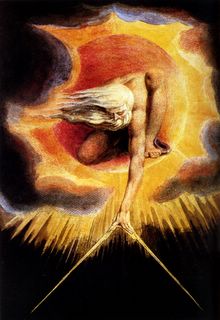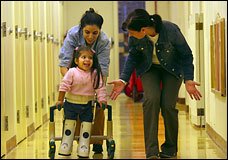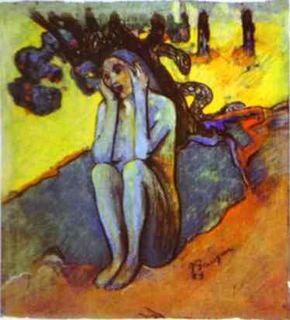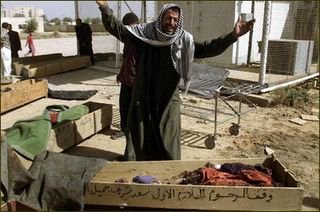
William Blake (1757-1827)
The Omnipotent
Oil on canvas, 1794

I would like to beg you to have patience with everything unresolved in your heart and try to love the questions themselves as if they were locked rooms or books in a very foreign language. Don't search for the answers, which could not be given to you now, because you would not be able to live them. And the point is, to live everything. LIVE the questions now.
---Rainer Maria Rilke
Truth is something you stumble into when you think you are going someplace else.
---Jerry Garcia
Watching the moon
at dawn,
solitary, mid-sky,
I knew myself completely:
no part left out.
---Izumi Shikibu
I'm not much of a joiner and never have been. I haven't sought out many groups in my life. Such pursuit never entered the picture much. My parents came from individually quite different backgrounds, weren't joiners either, and didn't bring with them any cultural baggage that got me involved in groups. They both were something like 3rd generation Swedes in America, but they didn't celebrate any traditions from the "old country" except smorgasbord at Christmas...and then it was at a paternal relative's house and not ours. Those people still could speak some Swedish, but I never heard but a few words in my house. Maybe the farming Swedes on my mother's side had been on these shores longer because I never saw a flake in them of any traditions except universally countrified ones. Their generation came out of the Depression and went to World War II, both of which catastrophes encouraged a style of surviving that was tightly knit to the institutions of the United States. My family was middle class America in the 1940s and 1950s, and if any "group" came out of that it probably was The Organization Man.
I suppose my father tried to "fit in" more than my mother did. She had had a career in nursing but stayed at home with my sister and me. She didn't feel compelled to do that, but certainly her girlhood on a working farm influenced what she thought a wife and mother should do. Occasionally my father encouraged her to return to nursing, but only because he thought she might find getting out of the house fulfilling. She didn't want to though. My father learned to play golf, because the guys at work did it. After he left that job he gave it up. Somehow he joined the Kiwanis Club, which is a sort of service organization, and maybe all males. He was becoming a prominent citizen in town and I guess he thought he was supposed to do something like that. Almost immediately people wanted him to run for mayor. His uncle was Mayor Emeritus of our town and he was an ideal candidate. He didn't want that though. He bristled at any feeling of obligation to people for special favors, and in his retirement told me he never really had a job he liked. I don't know what he wanted to be except a good father, and there didn't seem to be a group for that.
I joined the YMCA and the Boy Scouts, but only for the activities and because kids I knew were in them. I wasn't gung ho and never got attracted to the hierarchies or job opportunities with them. We weren't even members of any church, until I heard about a youth group at one that my girl friend went to. My mother was raised fundamentalist United Brethren and she didn't like it---obviously: she married an actor. My father I guess was agnostic, but did like to sing. I dragged them both into the First Baptist Church (not involved in any way with Southern Baptists) and they got my father into the choir. I was baptized (full immersion) in that church, but never felt much allegiance to it or any spiritual development going on.
My father spent World War II working in essential industry at home, building bearings for tanks, and spent no time in armed service. When I came to draft age in the late 50s, the Korean whatever was over...and we had peacetime until the Cuban crisis, which I sweat out at Harvard without deferment. I had been called for a physical in the runup to possible engagement with Russia over missiles in Cuba, and was categorized 1-A. I told the sergeants I was a member of the Fair Play for Cuba Committee, but they'd never heard of it. The Viet Nam lottery came later, but I wasn't called. So there's no tradition of the military in my history either.
OK, so I joined some radical political groups, but I kind of stayed on the outside of those too. I didn't write pamphlets and tracts or burn the midnight oil cranking the mimeograph for leaflets to pass out. I carried signs and went to rallies and demonstrations, which I loved. If I was a member of anything, it was the Alienated Generation. There were good traditions there, but if you lived in smalltown America you really had to look for them. I had discovered jazz and swing by accident before my teen years. I had collected stamps, butterflies, and autographed pictures of movie stars...and records came next. I came out of my room after listening to jazz, and my mother said I looked like I was on drugs. Well, a lot of jazz players were on drugs...and my parents worried. However, jazz musicians are among the most independent and individualistic characters on the planet, and the ideas I got through their horns influenced my life totally. I was in civil rights because of jazz.
In the 1950s, there was Brando and James Dean, "adult" westerns, Beat poets, existentialism, Samuel Beckett, the beginnings of French and Italian cinema, "sick" comics, Jean Shepherd and Jules Feiffer, rhythm 'n blues, girls with rocketship breasts and cars with fins. There also were fraternities and sororities in high school. The normal kids joined. I got invited into one but hated the torture of hazing and quit almost immediately. Why would I want to give up all the wild stuff of the rebel outsider? I became an intellectual and read philosophy. I was a champion debater, and at my most ruthless decided to become a lawyer. But I didn't. Instead I stayed on the outside looking in. I got a job reporting for radio news during high school, and might have been good at journalism...but now that I see what happened to that field in this country, I'm happier I opted for various kinds of teaching jobs instead.
So through it all, I've enjoyed the privilege of knowing people as individuals, and most of my friends have been something like me. Unaffiliated. Recently I joined the Episcopal Church, but I'm hoping I'm too old now to get asked to be any part of a governing board or something. Most of my friends, especially after the 1960s, have been from different religions entirely. I was interested in Buddhism in the 1970s, and spent some time with the Kagyu lineage of the Tibetan variety. One day I asked a meditation teacher if it was possible to be a Buddhist and a Christian at the same time. He laughed softly, looked at me skeptically and said, "I don't think so"...with a definite overtone of Absolutely Not. I nodded and stepped spiritually a step back. I'm used to doing that. I understand that Catholic, Jewish, fundamentalist, pagan, and Buddhist friends do things, go to things where I really don't fit in and don't belong. There's an energy hierarchy in Hindu things, and I prefer not to get too close. I have friends who do though, and probably are "more" in the moment. Islam still is a mystery, but I'm learning.
Groups sometimes open...and then close. In the mid-1960s there was an amazing intermingling of white and black cultures in the US. I mean, it was possible if you tried. I went to work for a rather exclusive private boys school in Connecticut (it's now co-ed and probably totally exclusive) largely because it had a summer program of working with inner city youth, mostly black and Spanish. When I asked the dean of the school why they had the program, he shrugged and said, "Noblesse oblige." I took the job anyway, and got to work with an interracial staff that was the Dream Come True. Once we had a healthy, common working spirit formed---and that happened fast because of individual dedication---we began to open to each other and expose vulnerabilities. We became relentless with each other when that happened. We would pick up on stereotypical trash in one another that we'd say or do, and point out There Is The Problem. Everybody sweat in that spotlight, but what liberation came! And then we'd party. Shugie had us all down to his house in Old Greenwich, the "poor" side of town, where he dug a pit in his front yard and barbecued us ribs for 3 days straight.
But then backlash came, and Black Power was proud. Suspicions returned, disappointments, disillusion...and it was time to step back. OK, I was on into feminism now anyway. There were never any groups that wanted me to join, but I definitely developed an attitude to step back and make room, to advocate for women in places of leadership wherever I was. And there's backlash there too, and now each woman I encounter is an individual...and I need to be sensitive about offending her, either by something I do or don't do. I'm glad I've had this history as a non-joiner to help me be adaptable enough to continue to meet new and challenging people. I love the endless variety of humanity.
However, I'm writing this with a troubled mind. I really despise prejudice, especially in myself. It feels good to get it identified and rid of. The other day my attention was drawn to an active movement to point out anti-Semitism among liberals in the US. One's usual response to a charge like that, and mine is too, is to get defensive and deny stuff right away. It's impossible liberals could be anti-Semitic. Are liberals going around checking off Jewishness in their minds? Are we suspecting Bush's foreign policy is really a Jewish plot? Then one unloads some counter-charges. Jews accuse everybody of anti-Semitism if we disagree about something. They won't let us criticise Israel without accusing us. What about Palestine? Jews wanted us to attack Sadam...but any nation of Arab extraction will do as well. And pretty soon one does sound prejudiced.
What is prejudice anyway? The usual definition is "pre-judging." I decide something about a group or individual without facts, information, experience. Well, that's pretty negative. I'm thinking that prejudice is about some unanswered questions. The questions may be absurd, absolutely farcical, crazy even...but I haven't happened to hear the answers, and I wonder if I'm even allowed to ask. Getting the answers may be risky and painful. Giving such answers about yourself or your group may be humiliating or infuriating. But what I learned in that Upward Bound project in Connecticut is how worth the work the process is. Maybe that was a special time and a special place but it surely was The Dream Come True.
*************************************************************************************************
For information on Facing A Challenge Within: A Progressive Scholars' and Activists' Conference on Anti-Semitism and The Left, try www.facingachallenge.com/
One of the most interesting people involved with these concerns is named Judy Andreas, and you can get acquainted at www.judyandreas.com/ . The "Letter To Judy" there, from November 24th, is worth your time. Her essay "Opening Up Jewish Eyes," from September 30th, is receiving a lot of reprint on the Internet http://www.judyandreas.com/index.php?page=showmonth&m=09&y=2005 .
There are two other sites that are adding to my confusion. One is http://www.jewishtribalreview.com/ and the other is http://www.jewishtribalreview.org/ . Perhaps you'll see what I mean...or can straighten me out.
How serious is current anti-Jewish feeling in America? Try http://www.nationalvanguard.org/ .






